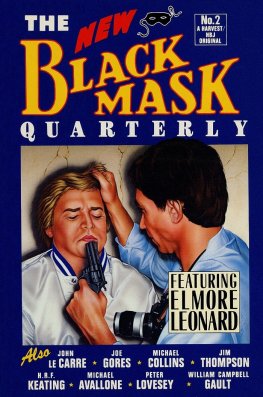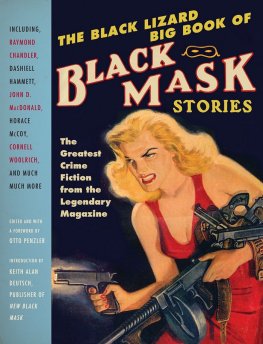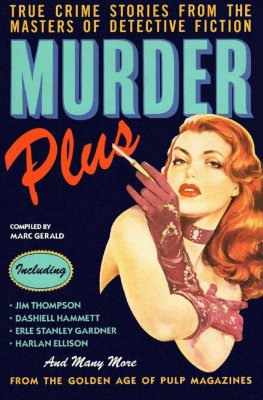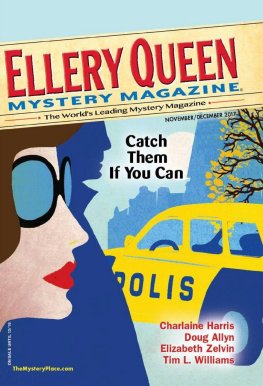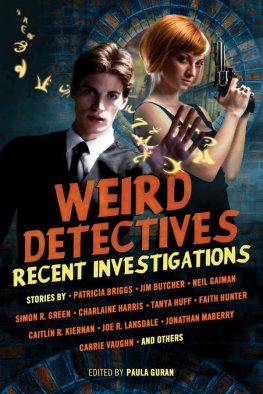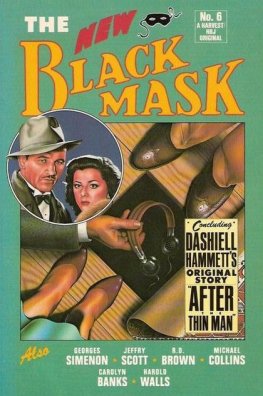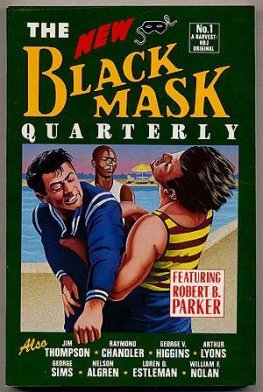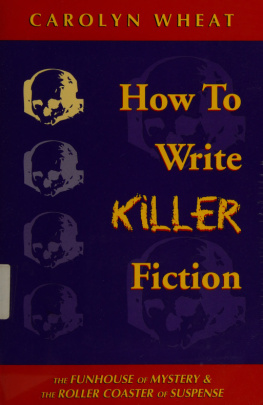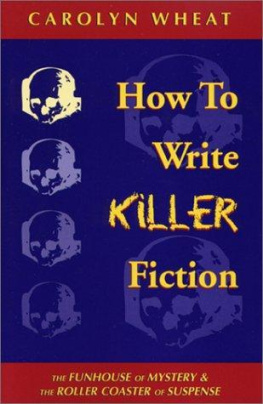Dzhim Tompson - The New Black Mask Quarterly (No 2)
Here you can read online Dzhim Tompson - The New Black Mask Quarterly (No 2) full text of the book (entire story) in english for free. Download pdf and epub, get meaning, cover and reviews about this ebook. City: San Diego, year: 1985, publisher: A Harvest/HJB Book Harcourt Brace Jovanovich, genre: Detective and thriller. Description of the work, (preface) as well as reviews are available. Best literature library LitArk.com created for fans of good reading and offers a wide selection of genres:
Romance novel
Science fiction
Adventure
Detective
Science
History
Home and family
Prose
Art
Politics
Computer
Non-fiction
Religion
Business
Children
Humor
Choose a favorite category and find really read worthwhile books. Enjoy immersion in the world of imagination, feel the emotions of the characters or learn something new for yourself, make an fascinating discovery.
- Book:The New Black Mask Quarterly (No 2)
- Author:
- Publisher:A Harvest/HJB Book Harcourt Brace Jovanovich
- Genre:
- Year:1985
- City:San Diego
- ISBN:978-0-15-665480-7
- Rating:3 / 5
- Favourites:Add to favourites
- Your mark:
- 60
- 1
- 2
- 3
- 4
- 5
The New Black Mask Quarterly (No 2): summary, description and annotation
We offer to read an annotation, description, summary or preface (depends on what the author of the book "The New Black Mask Quarterly (No 2)" wrote himself). If you haven't found the necessary information about the book — write in the comments, we will try to find it.
The New Black Mask Quarterly (No 2) — read online for free the complete book (whole text) full work
Below is the text of the book, divided by pages. System saving the place of the last page read, allows you to conveniently read the book "The New Black Mask Quarterly (No 2)" online for free, without having to search again every time where you left off. Put a bookmark, and you can go to the page where you finished reading at any time.
Font size:
Interval:
Bookmark:
The New Black Mask Quarterly ( 2)
Elmore Leonard: An Interview and Commentary on LaBrava copyright 1985 by Elmore Leonard. Excerpt from LaBrava by Elmore Leonard, copyright 1983 by Elmore Leonard; published by Arbor House Publishing Co. All rights reserved. George Smiley Goes Home, by John le Carr, copyright 1977 by Authors Workshop AG. Excerpt from Come Morning, by Joseph Gores, copyright 1985 by Dojo. Inc. A Reason to Die, by Michael Collins, copyright 1985 by Dennis Lynds. The Ripoff, copyright 1985 by the Estate of Jim Thompson. And We in Dreams, copyright 1983 by H. R. F. Keating. A Bullet for Big Nick, copyright 1949 by Michael Avallone. Trace of Spice, copyright 1985 by Peter Lovesey.
Elmore Leonard:
An Interview
It has been commonplace to read confessional reviews of Elmore Leonards novels in which a prominent critic admits he is late to sing Leonards praises. Glitz has ended that. If it is not the most successful mystery novel of 1985, it is certainly among the most celebrated.
Glitz is Leonards twenty-fourth novel. He began his literary career in 1953 writing westerns in the mornings before he reported to work as an advertising copywriter. Eight years and five novels later, he published Hombre, which has since been designated one of the twenty-five best westerns of all time by the Western Writers of America. When the 1967 movie of Hombre (starring Paul Newman) freed Leonard to write fiction full-time, he found that the market for westerns had dried up, so he turned to mysteries, which many readers feel is the genre in which he excels. His reputation as a skilled storyteller and a master at characterization has been building with each successive novel. Herbert Mitgang has observed that the lives of Leonards characters add up to social commentary.
Mr. Leonard lives in Birmingham, Michigan. He is presently working on a pilot film for an ABC television detective series to be called Wilder.
NBMQ: How do you account for the instant success of Glitz? Did you do something different this time?
Leonard: No, I didnt. Its an accumulation. I think its something thats been building gradually over the years, certainly since 1980, from the time I went to Arbor House and Don Fine really got behind me. I had reached a point where I was no longer simply grateful that a publisher had accepted my work. Now I expected the publisher to do something. If they really liked my work, they should sell it. So I went from Delacorte to Bantam, and then Don Fine at Arbor House said, Ill sell you. He proceeded to get my material into the hands of, I think, reviewers who were more prestigious as far as having an effect on other reviewers. The next four years or so reviewers began to notice me and ask, Where have I been? The I in some cases referring to the reviewer himself, though most often it referred to me. As if I had been hiding out somewhere. It was Don Fine who started this. From then on it was a matter of momentum. As more and more people began to read me, and as more reviewers began to review me all over the country, I got still more readers and my books began to sell at an astonishing rate.
I think the timing of the publication of Glitz was perfect: the fact that it came out when it did, right after the first of the year. Right after that Christmas rush of important titles, important authors. It came along during a sort of lull; that enabled me to get on the best-seller list to begin with. Then I got good reviews again a good review by Stephen King, for example, in the New York Times. A write-up in George Wills column must have surprised everybody; Ive gotten an awful lot of response from it. I dont think that the book is that much better. Ive been more aware lately of trying to make each book better, but in very minor ways. Its not noticeably better written. I think youll see the same style, the same tone, the same sound ever since 74, ever since 52 Pick-up, that I would call the beginning of what Im doing now. While I have been improving in some ways, it was mostly a matter of timing. My efforts paid off. Im going to continue to try to improve as far as that goes. I think we can always do that. But its more in very small ways. In Glitz, for example, it was in experimenting with different points of view in writing the same scene. I would write it from one characters point of view and then switch around and do the scene again from another characters point of view and find that it had a lot more life in it, that it was a little more dramatic, more colorful, more interesting. Im going to continue to do that.
NBMQ: I notice an increasing concern with sociology in your recent books. Is that deliberate?
Leonard: Well, Im not sure I know what you mean.
NBMQ: The social structure of a city, a class of people.
Leonard: I have made more of an effort in that line ever since, I think it was 1977 or 78 when a reviewer said, He set a story in Detroit, and he didnt take full advantage of the background of that particular city. He didnt bring it to life. I think that particular review was by an Associated Press writer, and unfortunately this review was the one that ran across the country and appeared in at least a hundred different newspapers. But I think I have learned things from reviews, ways to improve my writing.
NBMQ: You really take reviews seriously?
Leonard: Well, some. When I see that it can be helpful because I do concentrate on backgrounds a little bit more. I certainly made more of Detroit in subsequent books. Ive been more aware of it, for example, in Florida, in south Florida, in south Miami Beach when I did LaBrava, in Atlantic City when I did Glitz. It is important. It is a part of the feeling that I get when I visit there that I want to put into the book, Ill tell you something else, too. As far as sociology is concerned, I try to keep current, in that what Im reading in the newspapers while Im writing the book, some of it is going to get into the book. Because its whats going on. What the characters read, there might be a reference to something certainly what theyre watching on television, a game show on television, for example. Which is part of our lives watching television, reading the paper.
NBMQ: How do you go about researching background? Do you just osmose it, or do you go to libraries, read back issues of magazines or newspapers?
Leonard: Lately Ive used a researcher, a fellow who works for a film company in Detroit. He does a lot of research for them. Hes sort of on a part-time basis with them, so he has time to do work for me. He went to Atlantic City, for example. First of all, I said I want to set a story in the Atlantic City-Philadelphia area. Lets find out whats going on there. He called the New Jersey Film Commission. They sent him some pictures, some literature on Atlantic City. He got the 1983 Pennsylvania Crime Commission report. When I decided, yeah, this is the place I want to set a story, he went to Atlantic City, came back with a file of newspaper clippings that covered the everyday activities of the city. He had it broken down into racketeering, prostitution, the unions, stories about the casinos themselves, new construction. This file is probably eight inches thick, stuffed with newspaper clippings. Then he took 180 pictures on Absecon Island from Atlantic City all the way down to Longport and then put all the pictures in order. So even before I went, I could see likely places to use as locations.
NBMQ: How much time did you spend in Atlantic City?
Leonard: I spent from Sunday through Thursday, five days. I spent one day with the Atlantic County major-crime squad, and I went over their procedures with them how they would investigate a death, what might appear to be a suicide. For example, I said to the detective, Youve got a woman thats found on the sidewalk. She obviously fell to her death. Whats the first thing you do? He said, Id look up. See if theres an open window somewhere. Then he explained how he would canvass the neighborhood or the apartment building first and talk to everybody. The procedures are the same most places except that they use different forms. They may go about it a little bit differently. Then I asked the police how they would react to a cop from another jurisdiction, a cop from Miami Beach coming in there and sticking his nose into it, asking them questions and offering to help. I got their reaction to that. I said, Assuming, of course, that you feel that there is a rapport between you and the Miami Beach cop, you get along okay, would you allow him to help a little bit? Sure, yeah. But I dont think Id want my chief to know about it. Things like that. I spent time with the cops. I was introduced to the president of one of the casinos; then he handed me over to a woman who was in charge of surveillance. She took me into the monitoring room where they look at the monitors of every foot of the casino floor. Then she took me to the eye-in-the-sky where youre standing right over the tables, where you look directly down on the play. So I got a pretty good view of what goes on behind the scenes. Most of the information, of course, came out of newspaper and magazine articles. Specific stories about a guy who comes to town with a million bucks and how hes treated and what he does with it. Same thing in south Florida, in Miami Beach, I roamed around there with a friend of mine whos a private investigator, a fellow I went to college with, University of Detroit, more than thirty years ago. Roamed around there, spent some time with the Miami Beach police, one detective in particular for
Font size:
Interval:
Bookmark:
Similar books «The New Black Mask Quarterly (No 2)»
Look at similar books to The New Black Mask Quarterly (No 2). We have selected literature similar in name and meaning in the hope of providing readers with more options to find new, interesting, not yet read works.
Discussion, reviews of the book The New Black Mask Quarterly (No 2) and just readers' own opinions. Leave your comments, write what you think about the work, its meaning or the main characters. Specify what exactly you liked and what you didn't like, and why you think so.

